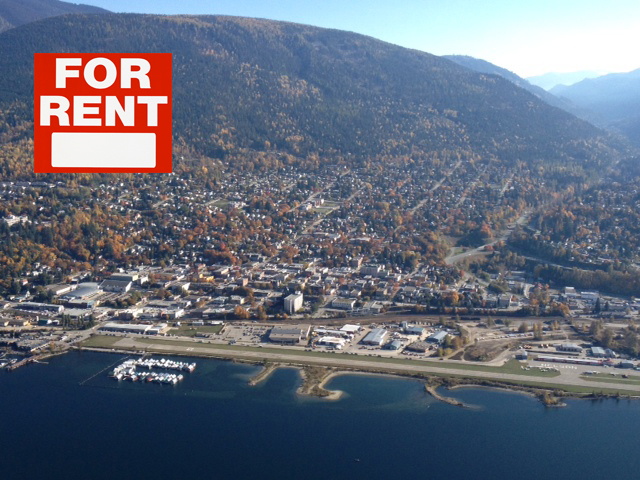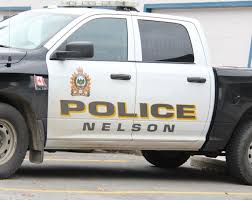City prepares to bring legislation to the short-term rental market
New rules will be brought to the city’s growing but unregulated short-term rental market next month, once the city institutes several proposed bylaw amendments.
City council is looking to pass several draft recommendations for bylaw amendments based on a recent city staff report, and deliver the final product for voting at the Aug. 8 regular council meeting.
After a debate during the last council meeting (July 18) on staff recommendations for the industry, council appeared satisfied with the amendments provided, although they did ask staff to look further into parking requirements, multi-family buildings and the business licence fee for a single room rental.
“Council feels that all short-term rentals should be licensed,” said Coun. Bob Adams.
For more than two months the city has employed a researcher in development services for the sole purpose of examining the gap between city policies and the short-term rental (STR) market.
With an estimated 120 listings in the short-term realm, the majority of them are considered illegal by virtue of the fact they lack a business licence — they would be eligible for a bed and breakfast licence — and are not in compliance with zoning.
City staff has drafted several proposed regulations for the STR market in Nelson, including:
- STRs would be allowed almost everywhere, however city-wide caps and a density cap are proposed in residential areas, in light of general support for this through public consultation (this is intended to maintain the integrity of residential neighbourhoods. Any property owner is free to apply to rezone to commercial, if that is their intention for the property). A density cap would help ease on-street parking competition without requiring new off-street parking to be built at great cost to resident-operators and Nelson’s natural capital;
- Distinguish between rooms for rent (such as a conventional bed and breakfast) and entire dwelling units;
- A new business licence category of up to $800 for a year-round, entire-dwelling unit rental;
- The availability of monthly and summer-only licences to facilitate occasional home sharing and to enable landlords of student housing to create needed summer tourist accommodation supply;
- Year-round licence-holders to contribute to funding tourism marketing;
- Fire safety inspections and a one-time proof-of-insurance requirement;
- Allow for the short-term rental of multifamily building units for the first time, provided that the property owner/manager or strata council has no objection;
- A principal residency requirement, supported by public consultations; applicants must demonstrate that the property is their principal residence. A new zone is proposed to allow for the possibility of a non-resident property owner to rezone a secondary residence for STR purposes. Nelson already requires potential B&Bs outside of commercial areas to rezone if they wish to have more than two guest rooms;
- Initial priority to existing STRs and bed and breakfast’s, but licencing requirements will still be obligatory.
- A process to revoke a licence in the case of a problematic STR.
- An online, publicly-accessible directory of all licenced short-term rentals and their 24/7 contact.
A view of the industry
The industry has unique nuances, according to data collected on Nelson’s STRs.
Most STRs are listed as available for rent for less than 70 per cent of the time; many are much more occasional.
According to a city staff report delivered to council Monday, out of 87 Airbnb (short-term rentals) listings reviewed in May, 14 had no reviews.
“Indicating that they possibly have not yet been rented. Most only accept multi-night bookings,” the report noted.
Seventy-seven per cent are entire dwelling units. A number are listed on multiple online platforms.
The research revealed the average nightly rate for an Airbnb in Nelson is $107, well below the average rate in Tofino, Kimberley and Sechelt, and half of that of Revelstoke and Fernie.
Self-reported safety data illustrate that fire safety is not a given, it was found. Out of 87 listings, 53 self-reported having a fire extinguisher and 69 a smoke detector.
Getting it done
According to the city’s researcher, STR bans in other jurisdictions “have proven unenforceable and potentially detrimental to the tourism industry.”
Compliance and enforceability have been paramount objectives of the city in trying to regulate a currently unregulated phenomena.
Research online has revealed the relative complexity of STR enforcement, although individual operators in the city were supportive of some form of regulation.
“Staff believes that Nelson is in a position to achieve a superior compliance rate than other cities have achieved by introducing dynamic regulations and a realistic enforcement strategy,” read a city staff report.
The status quo carries the disadvantage of a lack of clarity, since people are not clear on what is and is not permitted. As a result, enforcement has been complaint-based and property owners have been challenged in illegally transforming residential properties into STRs.
However, actively prohibiting STRs is not a move either the community or the tourism industry supports.
“A negative impact on tourism, particularly in the summer, would be a possible consequence,” a staff report noted. “Anecdotal evidence from STR operators and visitors suggests that the local STR market is composed primarily of visitors of friends or family in residential areas who thus do not wish to be downtown.”
Speaking of the law
Municipalities carry a statutory obligation to ensure the fire safety of hotels, lodging houses, “and any other building, except a private dwelling, where lodging is provided” by means of regular inspection.
If they are approved, short-term rental business licencing will generate new revenue that can be used to increase general bylaw enforcement capacity, a city staff report noted.
“A significant number of short-term rental operators have indicated their desire to be regulated and licenced,” it read.
The proposed $100 tri-annual inspection matches the building inspector’s current cost recovery charge for inspections.


























